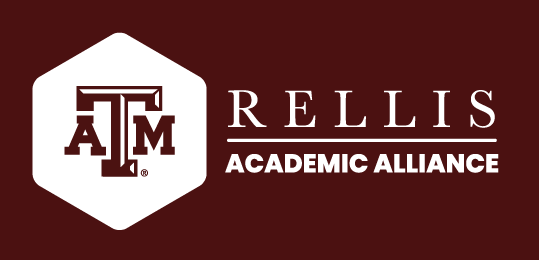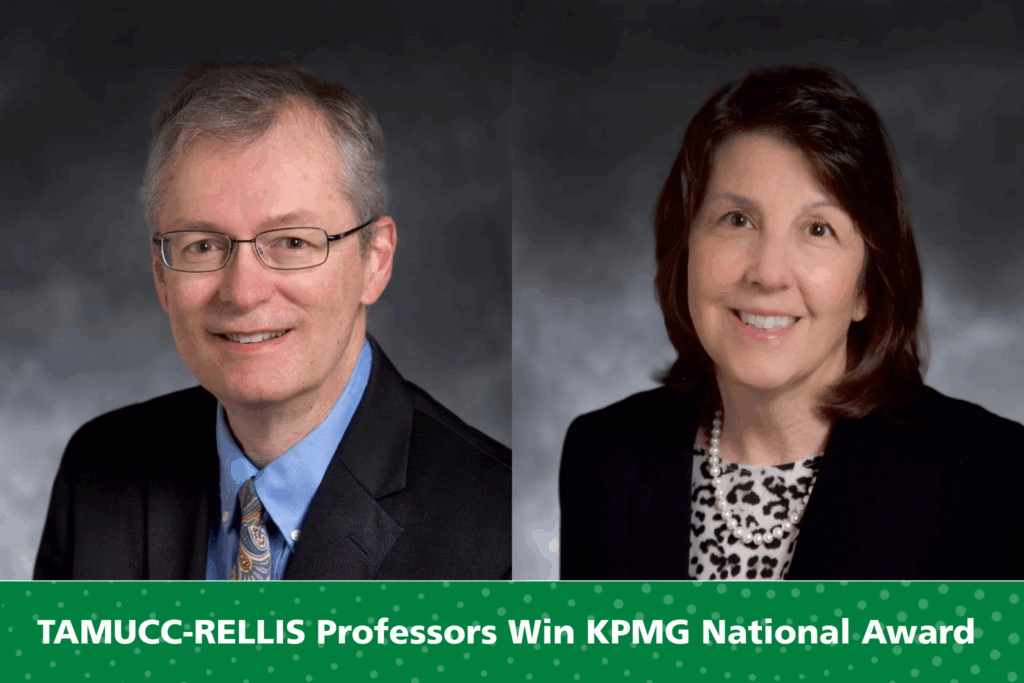Bryan, TX. — Texas A&M University-Corpus Christi at RELLIS Business Professors Dr. Katherine Smith and Dr. Lawrence Murphy Smith recently partnered with Kennesaw State Professor Dr. Don Ariail to win the KPMG Outstanding Published Manuscript Award for their research on human trafficking. The award-winning paper, “Human Trafficking and Gender Inequality: How Businesses Can Lower Risks and Costs,” was published in the Journal of Risk and Financial Management. The professors received the award at the August 2025 annual meeting of the Gender Issues and Work-Life Balance Section of the American Accounting Association.
In an overview of their article, Dr. Katherine Smith explained the focus of their research:
“Year after year, human trafficking, also known as modern-day slavery, remains a profitable multi-billion-dollar business, [and] one of the top three criminal activities [in the world]. Human trafficking especially harms females who make up about 70 percent of victims, of which, 50 percent are adult women and 20 percent are girls,” she said.
“This disproportionate impact on females is connected to gender differences and the greater vulnerability of women to coercion and manipulation,” Smith said. “Our study provides an overview of human trafficking, an empirical analysis of the relationship of gender inequality to trafficking, and specific steps that businesses can take to help prevent this crime.”
Dr. Katherine Smith went on to say that “on average, countries with higher levels of gender inequality are associated with higher levels of trafficking. Thus, business firms should be particularly cautious of human trafficking when carrying out business in countries where gender inequality is high.”
Dr. Murphy Smith explained businesses’ potential role in human trafficking. “Regarding businesses, if they fail to set up safeguards, they may unknowingly provide products and services to people involved in human trafficking, which could incur legal fines, reputational damage, lost business, and litigation,” he said. “Ending trafficking will require cooperation of multiple parties, including individuals, government, and businesses.”
The authors conclude that business firms, large and small, can do their part to detect and prevent human trafficking. This will benefit firms by reducing their risks and costs and will benefit society overall by protecting people from becoming victims of human trafficking.
____________
Dr. Katherine Taken Smith is a Texas A&M Corpus Christi Professor of Marketing at RELLIS. Her research examines digital marketing, global marketing, and corporate social responsibility. Dr. Smith has a lengthy record of academic achievements, including several books, numerous academic journal articles, conference presentations, and awards for teaching and research. Her research is highly referenced, with over 5,500 citations of her work per Google Scholar.
Dr. L. Murphy Smith is a Texas A&M Corpus Christi Professor of Accounting at RELLIS. His academic record includes numerous research articles, books and monographs, academic conference presentations, research grants, and awards for teaching and research. Dr. Smith’s research examines ethics, international accounting, and the impact of religiosity on business and society. His work has been reported in various news media, including National Public Radio, Fortune, USA Today, and The Wall Street Journal.
Contact info:
Dr. Katherine Smith, Professor of Marketing
Dr. L. Murphy Smith, Professor of Accounting
Article reference: Ariail, Donald. L.; Smith, Katherine Taken; & Smith, L. Murphy. (2024). Human Trafficking and Gender Inequality: How Businesses Can Lower Risks and Costs. Journal of Risk and Financial Management, 17(9), 418. https://doi.org/10.3390/jrfm17090418.



